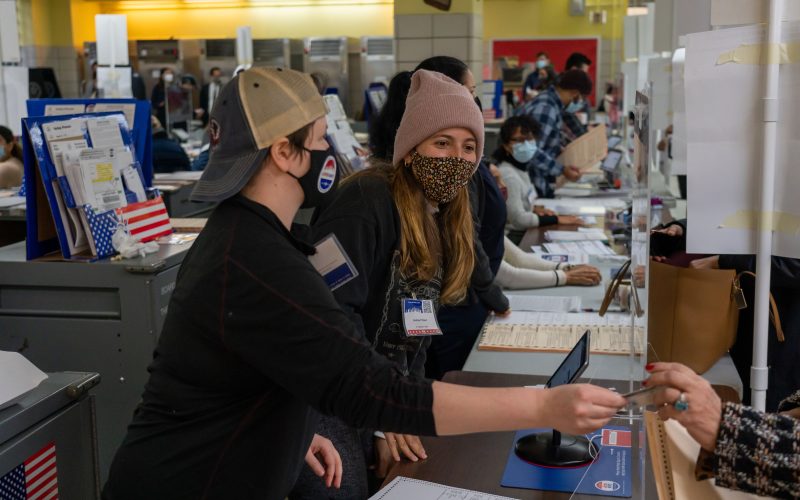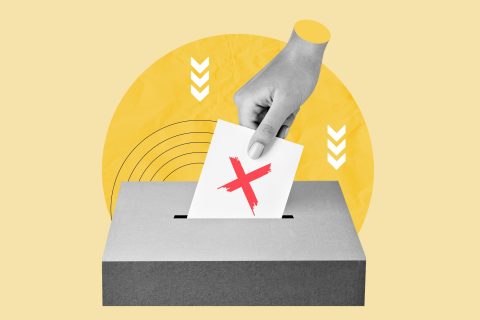In the aftermath of the 2020 election, everyone from U.S. senators to local election workers have been threatened with physical violence. Zack Beauchamp is a senior correspondent at Vox, and he joins host Krys Boyd to discuss how these threats impact voting and how elections are conducted. His article is “How death threats get Republicans to fall in line behind Trump.”
Threats toward public officials are on the rise
By Shaunessy Renker, Think Intern
Between 2016 and 2021, the number of threats made against members of congress investigated by Capitol police increased elevenfold. Anonymous tactics are used against local and state-level politicians of both parties, but there’s been an outsized number of threats leveled against Republican leaders to intimidate them.
Vox reporter Zack Beauchamp, author of “How death threats get Republicans to fall in line behind Trump,” wrote about the anonymous intimidation impacting not only members of Congress, but all the way down to election volunteers.
“An expert on elections and administrations said that they didn’t know how to quantify how much there had been an increase in threats because there had never been threats before,” says Beauchamp. “The idea of there being a systematic and large number of threats of violence directed against these ordinary volunteers was inconceivable—nothing like this had happened in modern American politics.”
Beauchamp says that especially following the 2020 election and Trump’s claims of election fraud, officials working in the electoral system—including volunteers—became targets of abuse and violence. Several conservative politicians and leaders have lost influence inside the Republican Party because the party is increasingly dominated by pro-Trump voices in ways that pull it toward political extremism.
Beauchamp cites an example. In Mitt Romney’s exit interview with The Atlantic after announcing his retirement, he recalled speaking with fellow Republican senators following the January 6 Capitol attack who advised him not to vote in Trump’s impeachment trial because his family would be threatened.
“It worked. According to Romney, there were people who would’ve voted to convict Trump, but were intimidated by the actions of the mob—by the clear and demonstrated pattern of violence from the MAGA-faithful,” Beauchamp says. “U.S. senators—some of the most privileged and powerful people in the country—being intimidated by credible threats of violence from people in their own party? This is an alternative world; this is nothing like the democracy we lived in prior to the 2020 election.”
Beauchamp says there is a substantial amount of documentary evidence in the days following the January 6 attack that indicate the demonstration of violence intimidated Republicans enough to affect their decision in voting for Trump’s impeachment.
One thing Beauchamp wants to point out is there has been a bipartisan increase in threats.
“But,” he says, “this is higher on the Republican side than it is on the Democratic side.”





